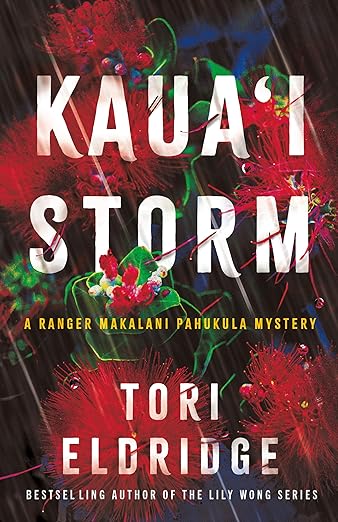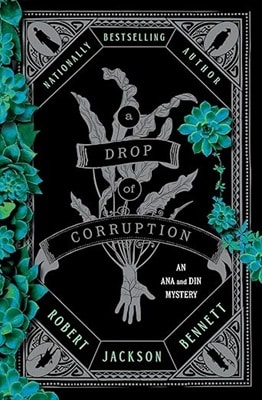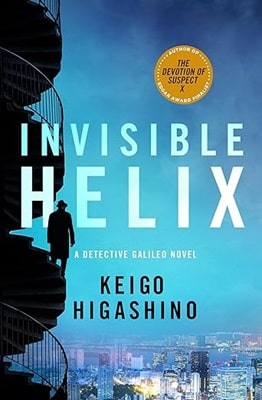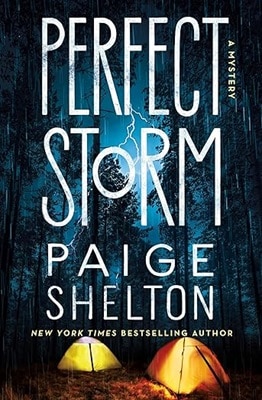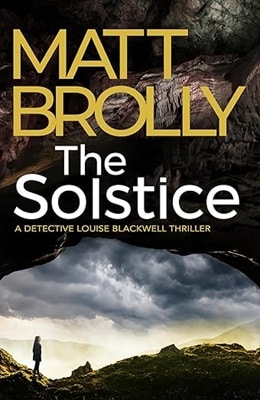
Q&A
Tori Eldridge
Tori Eldridge is the bestselling author of the Lily Wong thriller series; finalist for Anthony, Lefty, and Macavity Awards, winner of the 2021 Crimson Scribe for Best Book of the Year. Her short stories have been featured in numerous anthologies, including Crime Hits Home, Back in Black, Joe Ledger: Unbreakable, and Weird Tales Magazine. Tori also penned the Brazilian dark fantasy Dance Among the Flames, inspired by her Academy Nicholl Fellowship semi-finalist screenplay. Before writing, Tori performed as an actress, singer, dancer on Broadway, television, film, and earned a 5th-degree black belt in To-Shin Do ninja martial arts. She is of Hawaiian, Chinese, Norwegian descent, born and raised in Honolulu, longtime resident of Los Angeles, and now resides in Portland, Oregon. Tori launches a thrilling new series with Kaua‘i Storm, a Ranger Makalani Pahukula Mystery in May 2025.
Q: How would you describe in a couple of sentences what Kaua’i Storm is about?
Tori: It’s a deeply emotional story about a national park ranger who comes home to Kaua‘i and finds two of her cousins missing, her beloved family in turmoil, and their traditional way of life at risk. When a dead body is found in the forest reserve, Ranger Makalani Pahukula—despite family and local resistance—forges ahead into dangers and an impact to her family no one could have foreseen.
Q: You have a multicultural background, being of Hawaiian, Chinese, and Norwegian descent. Your previous novels paid homage to your Chinese and Norwegian roots, but this is the first time you’ve written fiction about native Hawaiians. Why now, and what challenges did you face in crafting your characters and the scenes?
Tori: It took writing four Lily Wong novels and a culturally-rich standalone set in Brazil before I felt professionally mature enough to write a story about Native Hawaiians living in Hawai‘i today. These are my people. I felt a profound responsibility to accurately depict our beautiful culture, traumatic history, and modern-day struggles while still captivating my readers with the page-turning action and intrigue they have come to expect. Balancing these goals and entwining them into a universal and relatable theme was always foremost in my mind.
Q: You give a real sense of scene in your writing, with the details of the natural world being particularly vibrant. Like your character, you live in Oregon now. What was it like writing about a place as beautiful as Hawaii? Did you spend time on Kaua’i in order to capture the landscapes on the pages?
Tori: The beauty of Kaua‘i is so vivid I only had to close my eyes and remember or stare at the photographs I had taken on my many visits until the words formed in my mind. But there are deeper aspects of nature in Hawai‘i than what can be readily seen—relevance to legends, history, and the nuanced differences in appearance or affect. All of this adds vibrancy and relevance to a scene. Rain is never simply rain, especially in Kaua‘i Storm.
Q: Are there any similarities between you and your main character Makalani Pahukula? Is she based on anyone you know? What can you tell us about her?
Tori: Although our life experiences and upbringing are vastly different Makalani and I have so many similarities. (Laughs) For example, I had an overabundance of drive and ambition growing up, far too much for the islands. It wasn’t until I moved to New York City at age nineteen to perform in Broadway musicals that I felt my energy finally fit with a place. I also struggled with other kids from when I was a toddler through high school. Makalani and I are also both happiest when we are productive and helpful—at times overly so. But one thing we definitely do not have in common is our height!
Q: A prevalent theme in the book is about coming home after being away, and feeling like an outsider for leaving in the first place. It’s very pertinent to the island culture but is also universal. Is this personal for you as an author, and as a Native Hawaiian yourself?
Tori: Very much so. Although I grew up in Honolulu during the second Hawaiian Renaissance—singing in our Native Hawaiian language in choral groups and dancing and chanting in the hula pageants at Punahou School—the resurgence of our language and traditions intensified during my decades on the mainland. The kānaka maoli (Native Hawaiians) living in Hawai‘i seemed far more connected to our culture and traditions than me. And yet I have carried my aloha and heritage in my heart wherever I have lived. Being Hawaiian has always been the core of my identity, and yet, I’m still not ready to return home.
Q: Kaua’i Storm addresses many contemporary issues Native Hawaiians are facing. Can you talk about some that were prominent in the story? How did you do your research?
Tori: The core of any culture is its language and, although the Hawaiian Kingdom had a school system that predated any American system west of the Mississippi, our Native language was banned as a medium of instruction in schools for ninety-one years. Part of the resurgence I mentioned before has to do with learning, teaching, and speaking ‘ōlelo Hawai‘i with fluency in everyday life—which is why it was vitally important to me that I include it in my book. It’s also why I took an immersion language course in ‘ōlelo Hawai‘i as well as a workshop in Hawaiian chanting before I began writing Kaua‘i Storm.
Local Hawaiians are also being priced out of their communities by mainland and foreign investors, forcing many to leave the islands or suffer through poverty. And although the US Congress set aside 200,000 acres of land for Native Hawaiians back in 1921, their stipulation that applicants have at least 50 percent Hawaiian blood is a travesty for Hawaiian families, almost all of whom are mixed race like me. I learned about all of this and more through study and conversations with elders, teachers, and activists back at home.
Q: The native language and local dialects are very much a part of the story. You are the narrator of the audiobook–what was it like to read it out loud?
Tori: Narrating this story was one of the greatest experiences of my author career, giving me an opportunity to use my former acting and voiceover skills and speak the dialogue exactly as I hear it in my head. Since I read aloud as I write and again whenever I review, I had spoken these words many, many times before. I was accustomed to playing out scenes and arguments between multiple characters, switching between voices and dialects at will. I had also grown comfortable with the Hawaiian phrases Makalani’s fluent grandmother speaks. Even so, the intimacy of narrating in a recording studio with a microphone inches from my mouth picking up every nuance made it all feel incredibly real.
Q: What do you think readers, especially those who’ve read your previous books, will be most surprised by when they read Kaua’i Storm?
Tori: Probably that my law enforcement-ranger protagonist doesn’t have mad ninja skills! (Laughs) I earned quite a reputation for writing those action-packed martial arts scenes with my Lily Wong ninja series. That said, I’m sure my readers will enjoy the wilderness adventures and the dangers Makalani will face.
Q: Is this book the first in a series? Can you give us a sneak peek of your next book?
Tori: Yes it is! The next book takes Ranger Makalani Pahukula to the Big Island of Hawai‘i for a puzzling mystery and the paniolo (Hawaiian cowboy) way of life.
Tori Eldridge's Latest
Kaua’i Storm
After ten years as a national park ranger in Oregon, Makalani Pahukula is back on Kaua‘i for her grandmother’s birthday. Having been gone for so long, Makalani finds the disconnect with her people and her struggles have never been more profound. Neither has her need to reacquaint herself with everything she left behind. When she reaches the homestead, she finds a bickering family and the disconcerting news that her cousins—a failed college football player and a rebellious teenage girl—have gone missing.
Makalani hopes they just ran off, too careless to realize the worry they’ve caused. But when hunters find a dead body in the Keālia Forest Reserve, Makalani fears something ominous is at play, and the search for her cousins grows more desperate. Although her help may not be welcomed by family and locals, Makalani is determined to solve a mystery that poses a greater risk than anyone imagines.
The investigation will open her heart, reawaken her love for the land she calls home, and strengthen her bond with her family. Because no matter how long she’s been away, for Makalani, Hawai‘i is in her blood.

